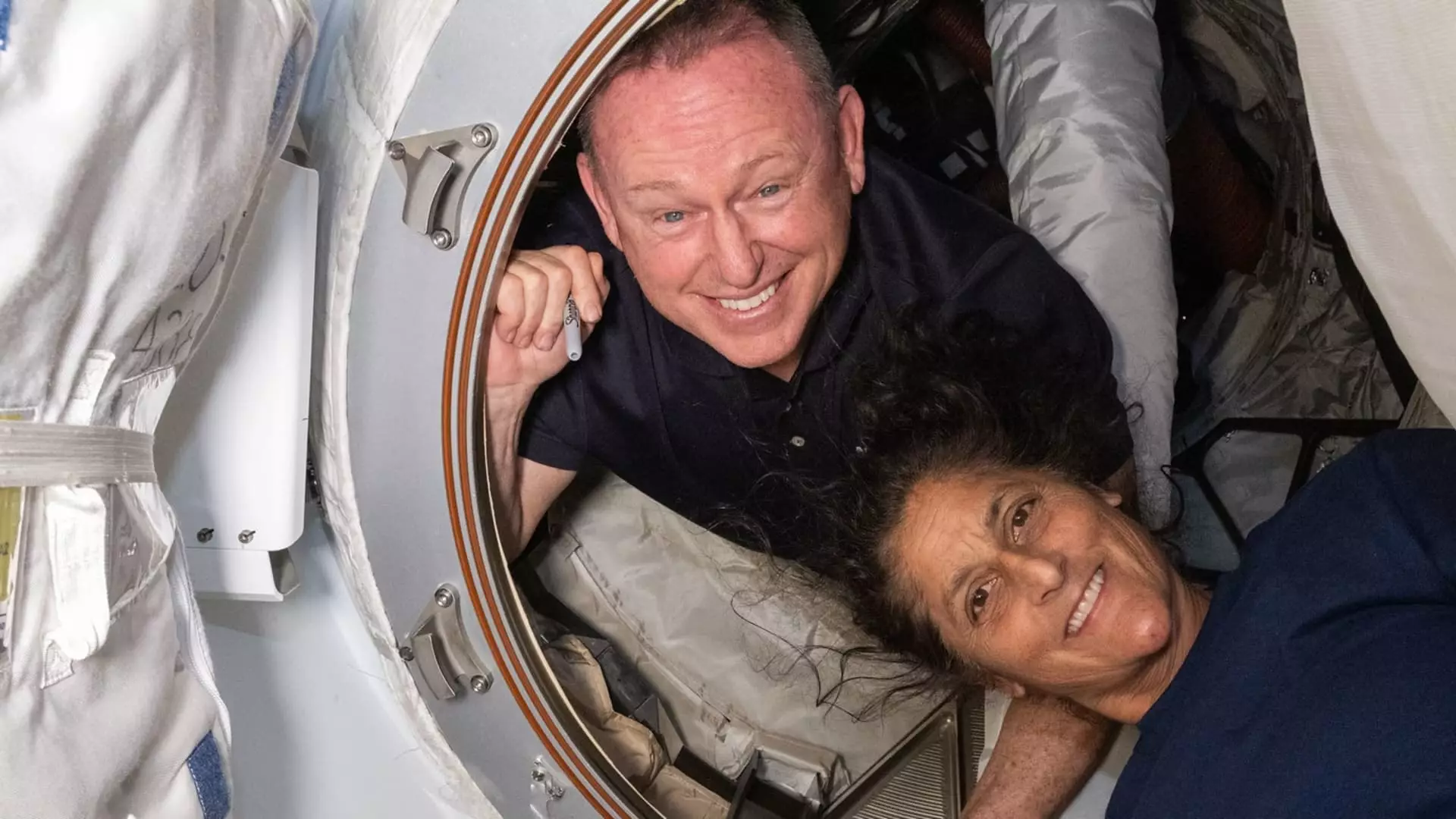When you imagine the brave astronauts who embark on life-changing missions beyond the Earth, you might picture valiant explorers blissfully defying gravity while pushing the frontiers of human knowledge. However, the recent fiasco involving the NASA astronauts Butch Wilmore and Suni Williams, stranded in the International Space Station (ISS) due to the malfunctioning Boeing Starliner, disrupts this ideal. Instead, it uncovers a labyrinth of political maneuvering, corporate mismanagement, and the unsettling vulnerability of human life in space.
Boeing’s Fumbling Innovation
The spotlight shines harshly on Boeing’s ambitious attempt to join the elite ranks of companies facilitating human space travel. Investors and taxpayers alike have invested vast resources into the Starliner project, only to see it bleed losses exceeding a staggering $2 billion. The recent “test flight”—which has morphed into a cringe-worthy escape from the absurd—illustrates a colossal oversight within Boeing. Failure to ensure that the spacecraft met basic operational standards before launching should resonate as a clarion call across the aerospace industry: rush jobs may lead not only to financial ruin but also to jeopardizing human lives.
Imagine a corporate titan of Boeing’s stature pleading for second chances, while fleets of SpaceX dragons elegantly ferry astronauts to and from the ISS. In an era where cutting-edge technology is expected to be flawless, Boeing’s mishaps reveal a glaring disconnect between aspirations and execution. The company is now left grappling with an uncertain future in the arena of commercial spaceflight.
NASA’s Political Minefield
As if Boeing’s failings weren’t enough, those intimately familiar with this debacle will note the chilling political specter haunting the space program. Under the Trump administration, narratives surfaced portraying Wilmore and Williams as “stranded”—not due to engineering failures but for alleged political machinations. This cliché of political scapegoating not only diminishes the credibility of space exploration but also raises ethical questions about how far we are willing to go to score political points. The notion that astronauts were pawns in a political game should be anathema to all who cherish space and scientific innovation.
As NASA wrestles with the implications of these manipulations, the agency’s credibility lies in peril; if space travel continues to intertwine with political interference, the inspiring vision of exploration and discovery will replace the pursuit of knowledge with mere headlines.
The Human Element: Astronauts’ Reality
The extended stay of Wilmore and Williams, initially designed for a short mission, adds an intriguing layer to this narrative. How do these seasoned astronauts maintain morale amidst the uncertainty of both their return and the fate of their intended vehicle, the Starliner? During their three-month odyssey in a metallic cocoon orbiting Earth, they embraced their roles as ordinary astronauts, focusing diligently on scientific experiments and maintenance work. This adaptability exemplifies the indomitable spirit of explorers, yet their resilience should not overshadow the grotesque farce thrust upon them by larger corporate and political machinations.
Williams, in her steadfastness to reassure the public that she did not feel “abandoned,” speaks volumes about the gravity of their situation. Her determination to return home to her family—the very essence of their motivations—highlights a chasm between the personal sacrifices made by astronauts and the labyrinth of bureaucracy they navigate.
The Future of NASA’s Ambitious Goals
Looking ahead, NASA’s dream of a dual-system transportation program combining Boeing and SpaceX now flickers precariously. The turbulence surrounding the Starliner project raises haunting questions about the future of human space travel and national security. Can NASA still afford to bet on Boeing’s faltering spacecraft? Or will the agency be coerced into a nearly singular reliance on Elon Musk’s pioneering endeavor?
In these uncertain times, one interpretation of our journey into space is clear: failure, particularly when compounded by factors like corporate negligence and political meddling, brings the fragility of human life and exploration to the forefront. While we crave progress, the pursuit of knowledge must be unequivocally free from the constraints of capitalism and partisan intrigue.
Adventurous souls may dream of trajectories that defy Earth’s pull, but this incident serves as a debacle that must be analyzed deeply; otherwise, we risk relegating ourselves to mere witnesses of our flawed ambitions in the cosmos, rather than setting the stage for genuinely transformative progress.

